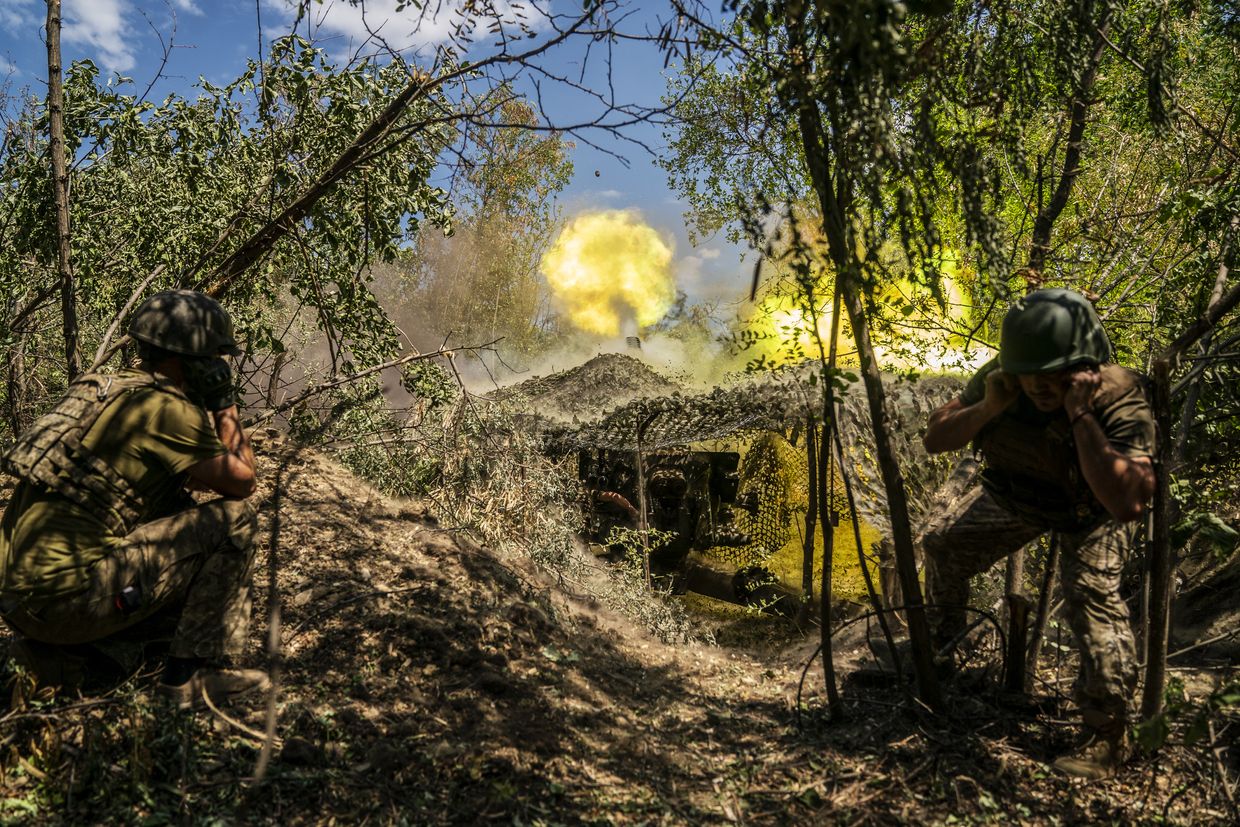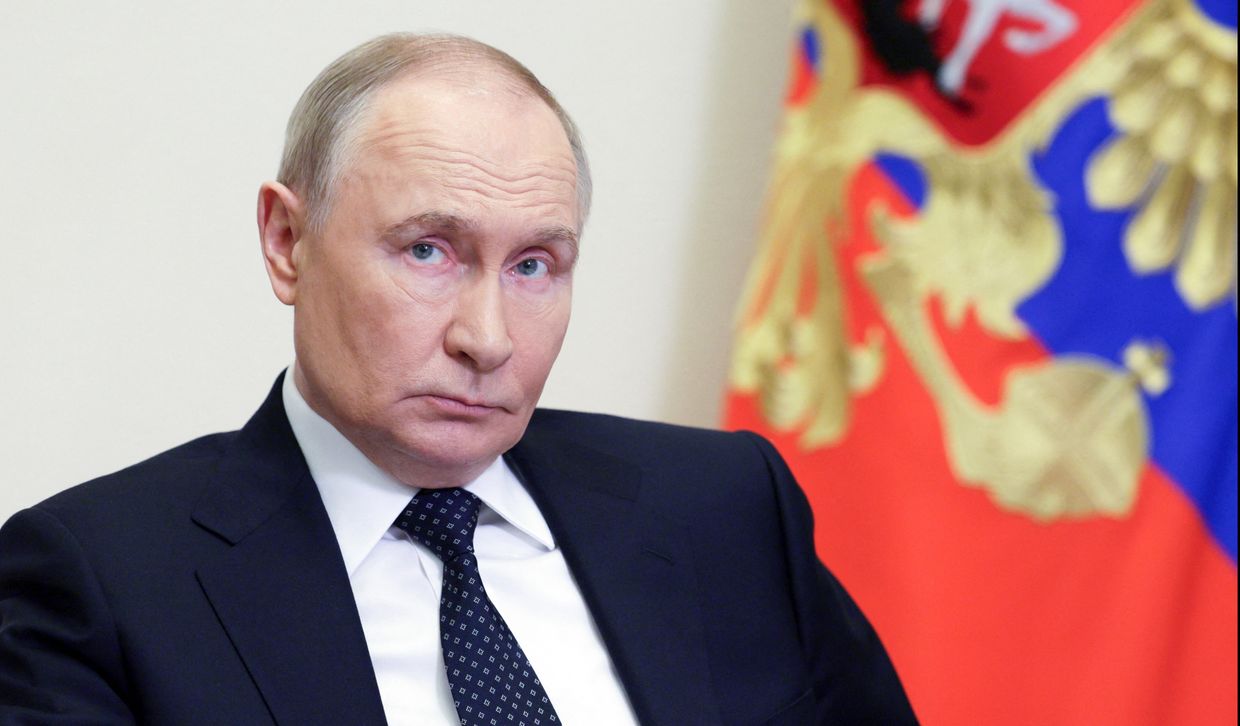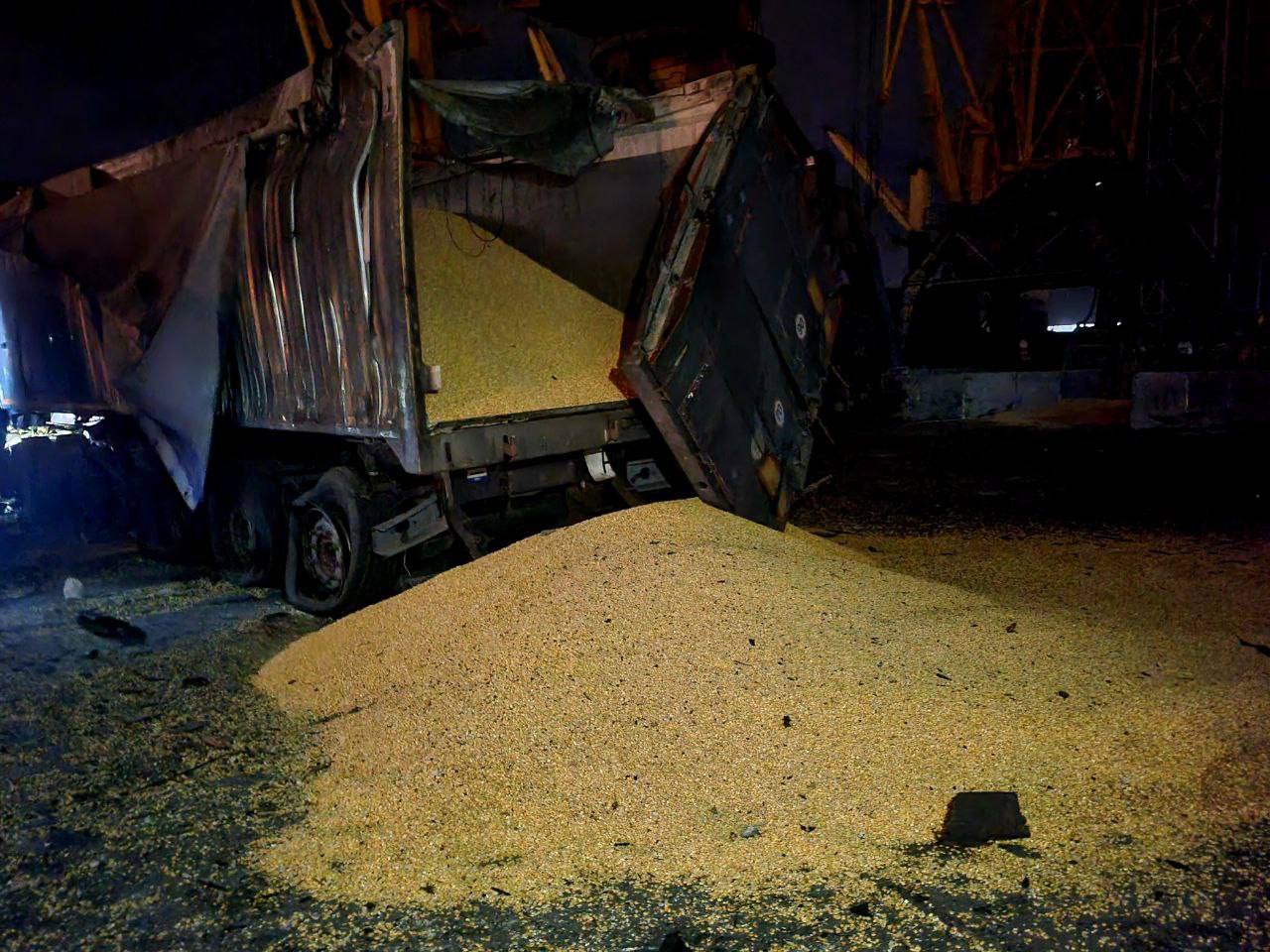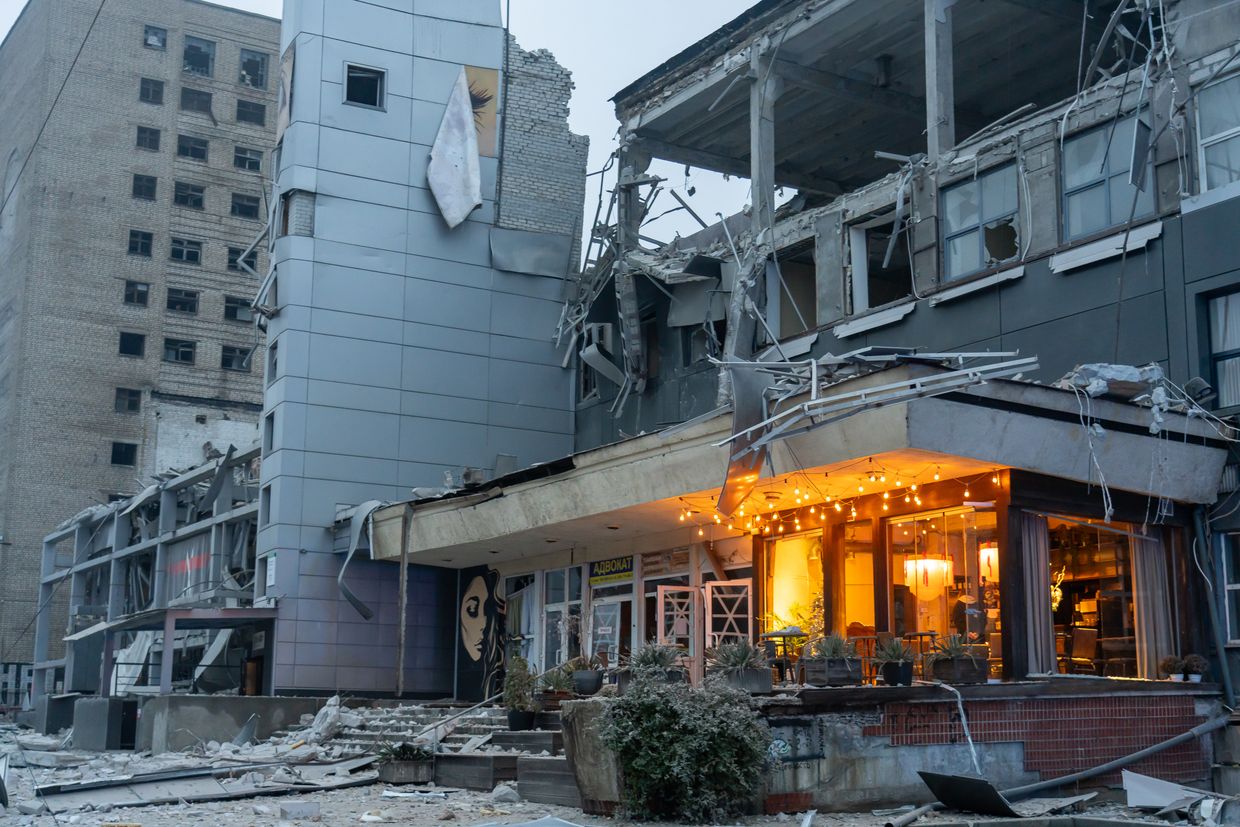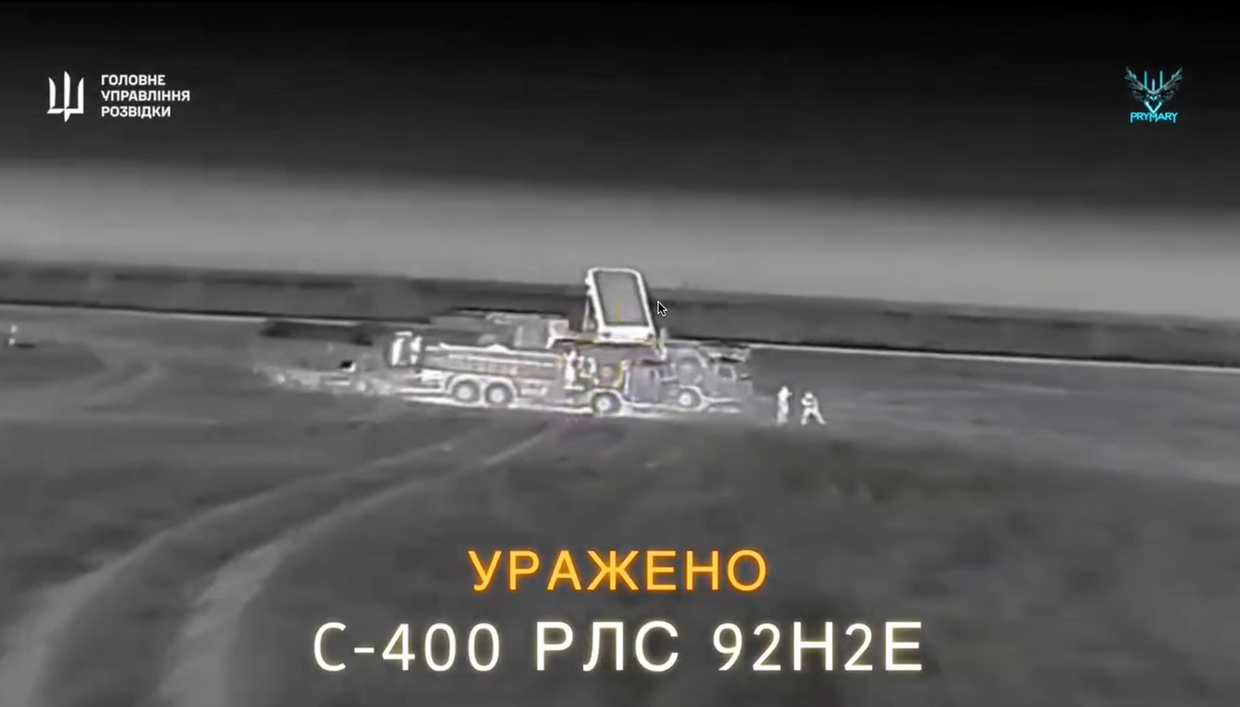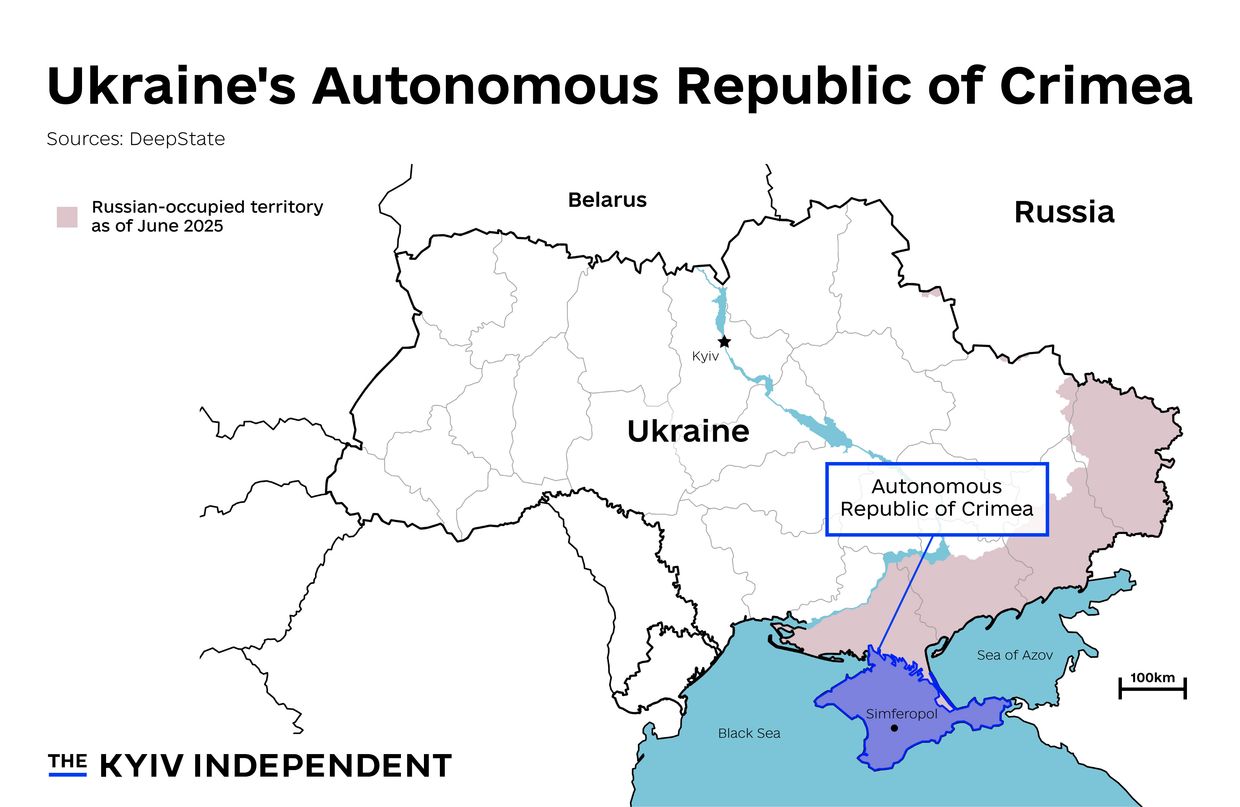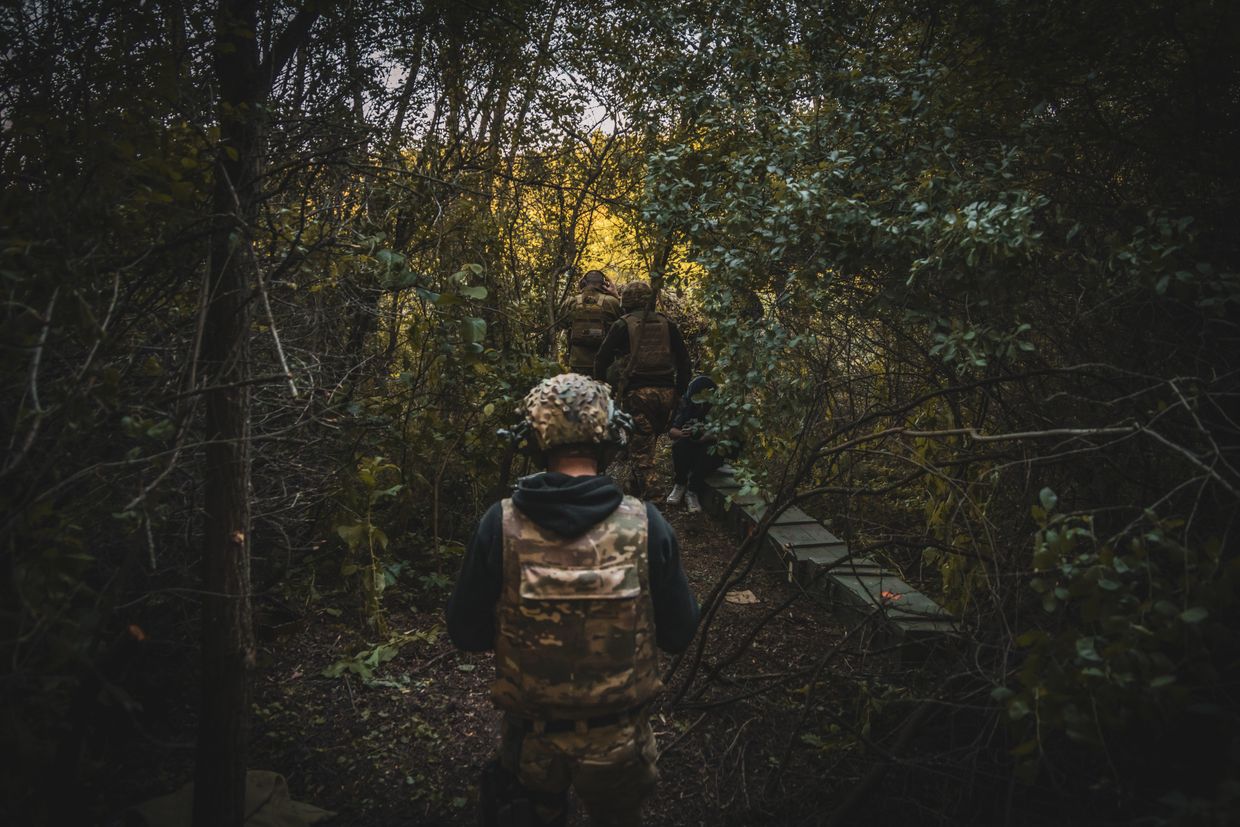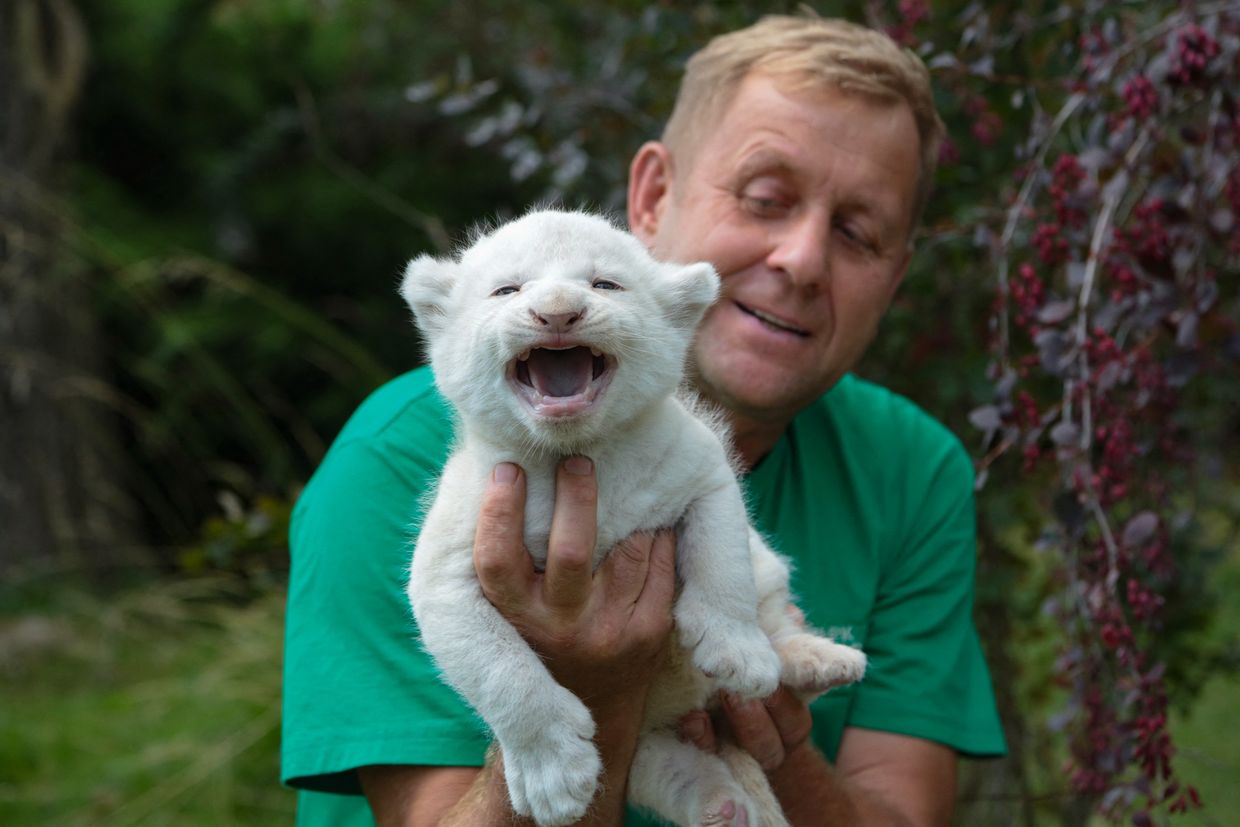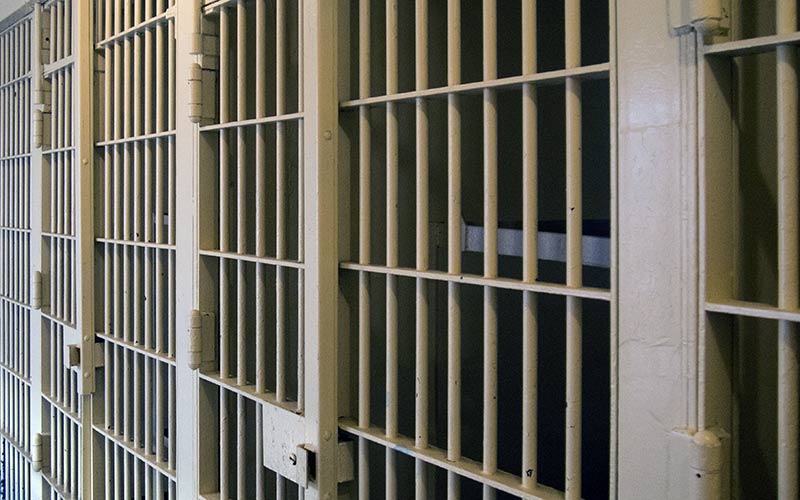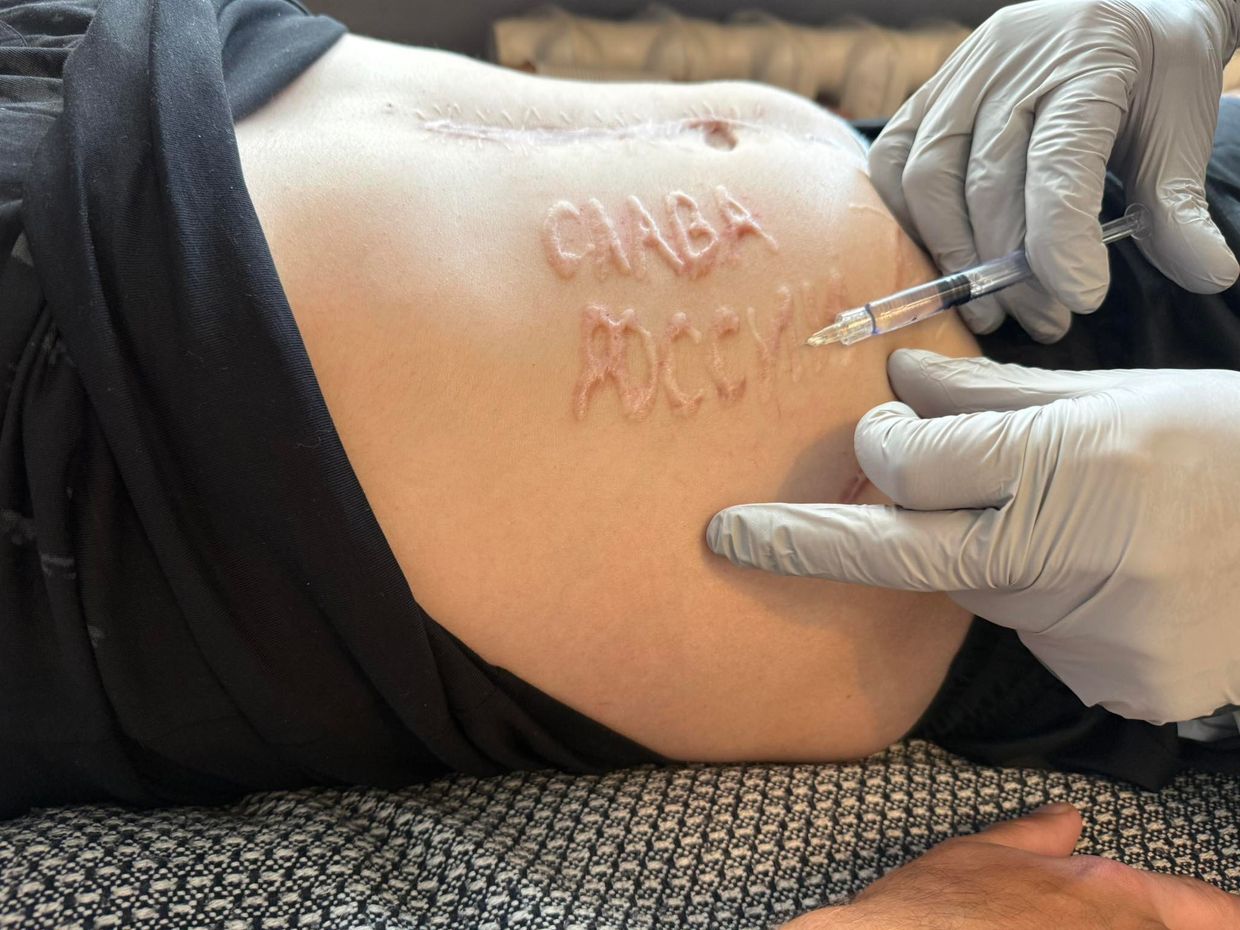Russian empire nostalgia covers occupied Mariupol as authorities paint imperial quotes on apartment walls
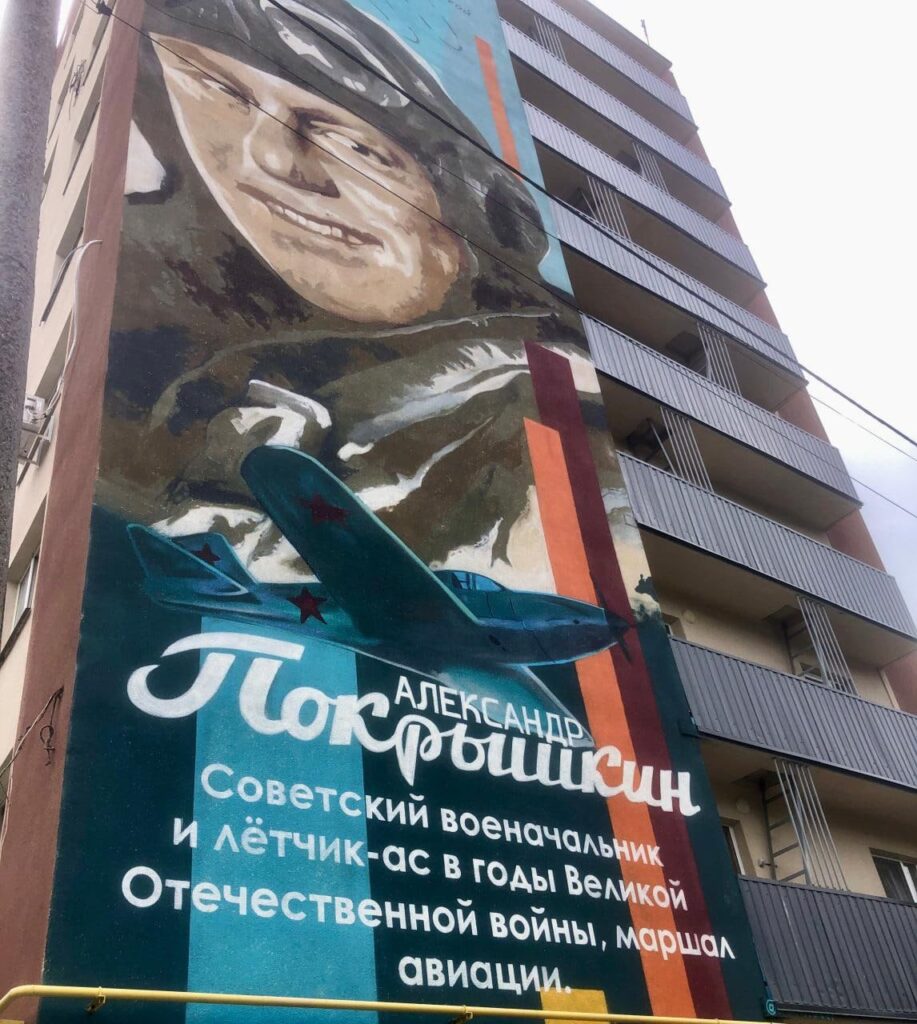
Russian occupation forces have destroyed all Ukrainian murals, monuments and pedestals in the occupied city of Mariupol.
In their place, authorities have installed Soviet-era military propaganda and imperial Russian imagery—massive murals celebrating World War II pilots, workers from remote Russian regions, and quotes from Peter the Great and Catherine II asserting Russia’s historical dominance.
The Mariupol City Council calls it a deliberate campaign to erase Ukrainian identity from the port city.
As the city crumbled around them, Ukrainian defenders and thousands of civilians retreated to the massive Azovstal steel complex. The plant’s underground tunnels became their final refuge before surrender in late May. Thousands of civilians died during those 86 days of siege.
Where Ukrainian symbols once stood, Russian tricolors now hang. Murals celebrating local history have been painted over with propaganda promoting “friendship with Russian cities.”
One such mural depicts workers from Russia’s Yamal Peninsula offering traditional bread to local residents, presenting the relationship between the conquered Ukrainian city and distant Russian regions as voluntary partnership rather than occupation.
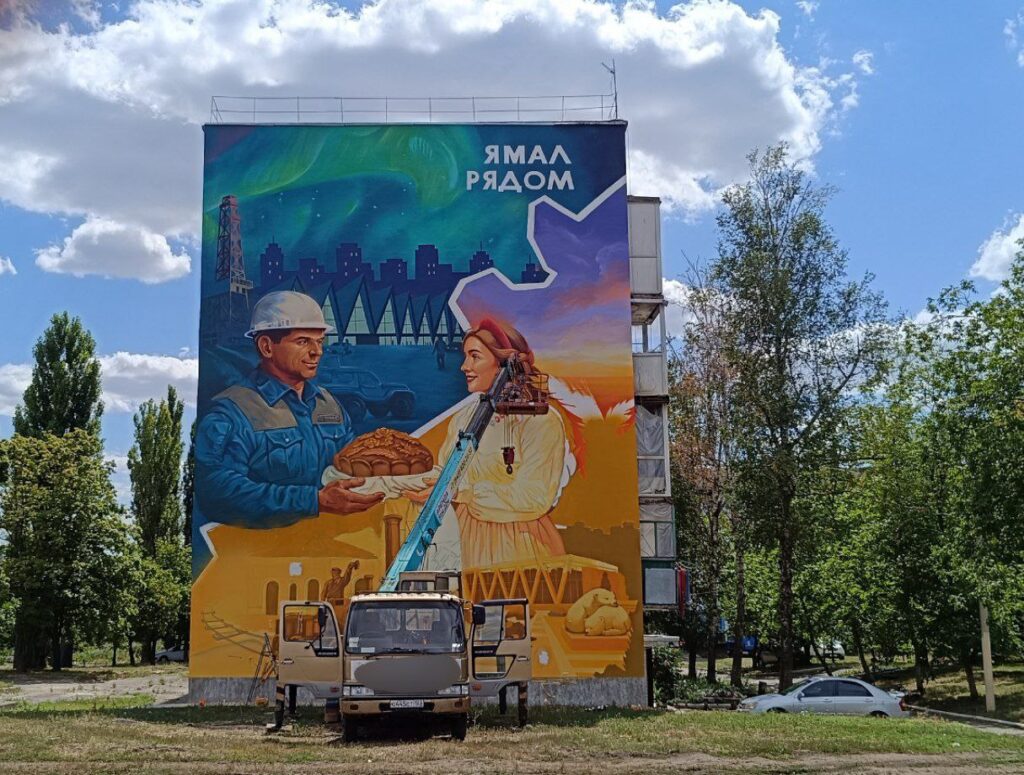
Russian occupiers emphasize imperial past
Another mural features imperial quotes including Catherine II’s declaration that “Russia itself is vast and powerful, and no one needs it.” The painting also references Peter the Great and military commander Mikhail Kutuzov. Here what the quotes say:
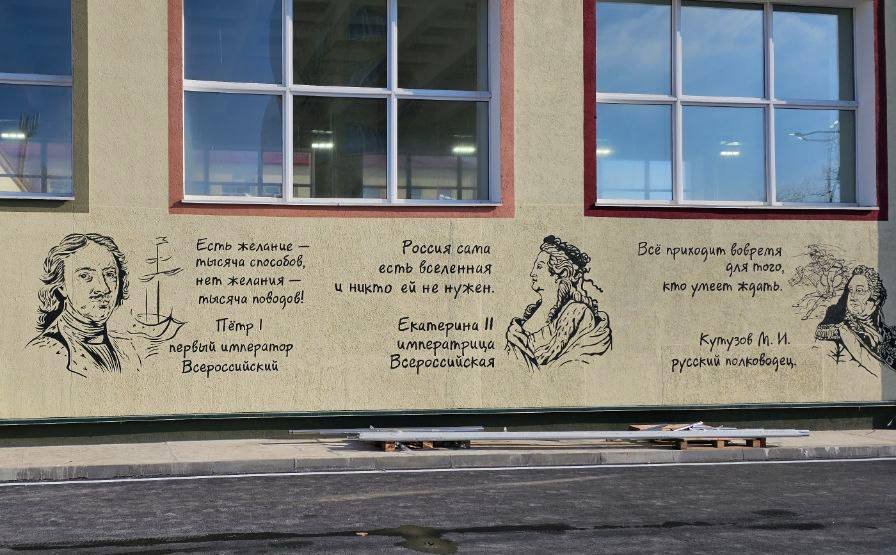
Left portrait (Peter I): “If there is a desire – there are thousands of ways, if there is no desire – there are thousands of reasons! Peter I, first emperor of All Russia.”
Center portrait (Catherine II): “Russia itself is vast and powerful, and it doesn’t need anyone. Catherine II, Empress of All Russia.”
Right portrait (Kutuzov): “Everything comes at the right time for those who know how to wait. Kutuzov M.I., Russian commander”
Russia alters symbols of Ukrainian resistance during siege
The occupation forces also rename historically significant locations. Azovstalska Street, named after the major steel plant where tens of thousands of residents worked and which became a symbol of Ukrainian resistance during the 2022 siege, has been renamed Tulsky Prospekt and now features monuments to Tula gingerbread and a samovar.
By installing monuments to these specifically Tula regional symbols, occupation authorities promote “friendship” with the Russian city while encouraging residents to see themselves as part of Russian rather than Ukrainian cultural heritage.
“It’s simply not profitable for Russia for people in Mariupol to remember even Azovstal,” said Mykola Osychenko, director of Mariupol Television, speaking to Espreso media.
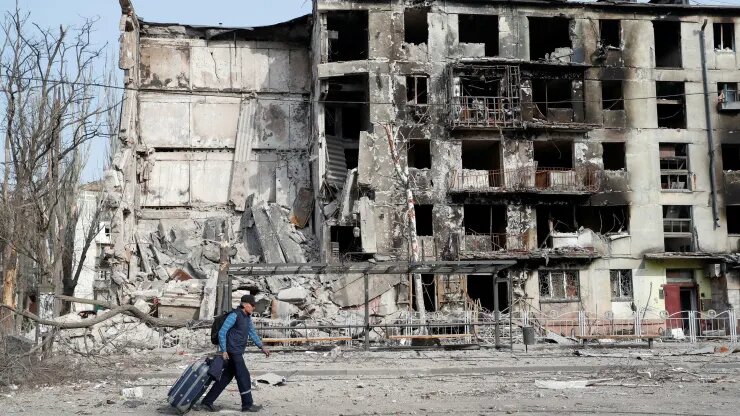
BBC: “Life is constant tension, fear, distrust” — reality of Russian occupation in Mariupol
Russia aim to rewrite Ukraine’s history on occupied territories
Before the 2022 full-scale invasion, Mariupol had become what Ukrainian officials called a “showcase of post-2014 recovery” in Donetsk Oblast.
The development of the city was happening after pro-Russian separatists briefly seized the city in May 2014, gutting buildings like the police headquarters before Ukrainian forces drove them out by June. The city’s visible prosperity contradicted Russian narratives about Ukrainian governance in the east.
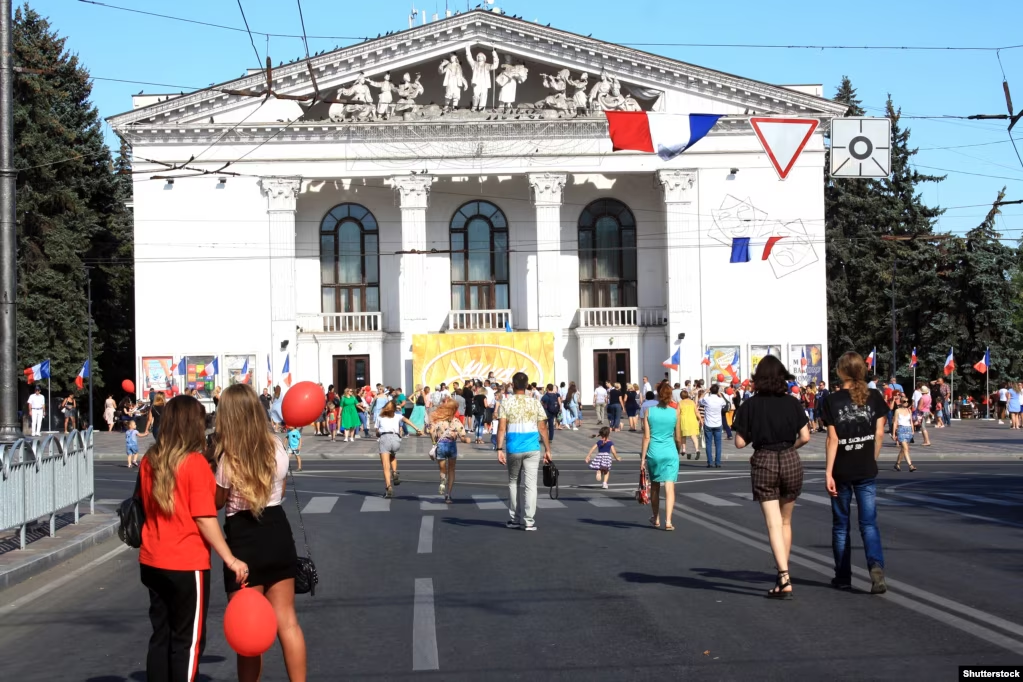
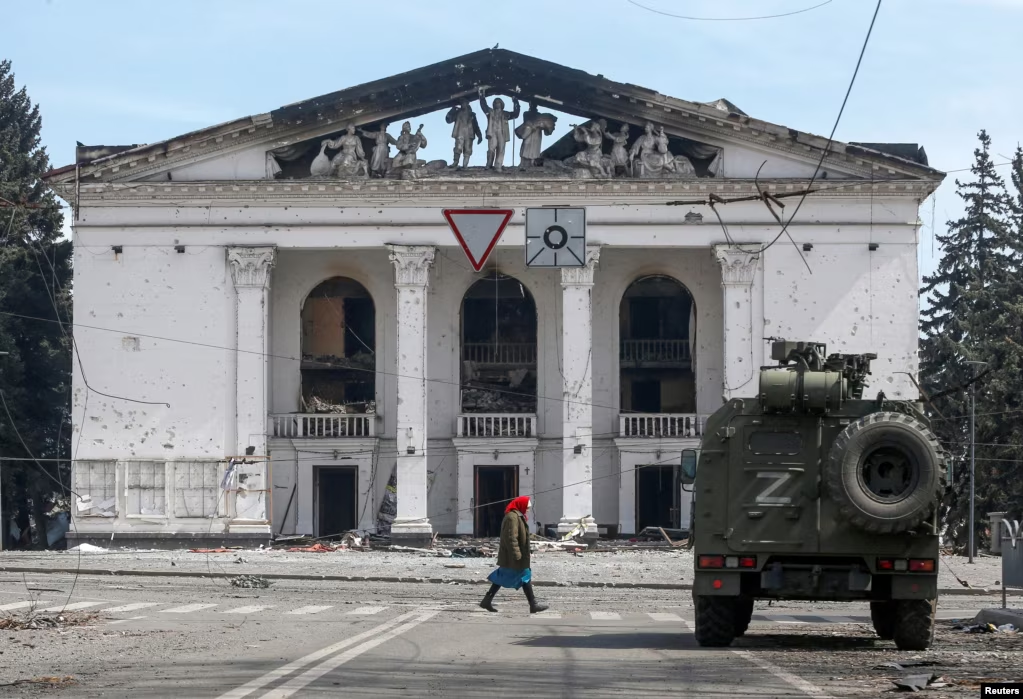
Ukrainian authorities invested heavily in rebuilding Mariupol’s damaged infrastructure, fostering economic growth, and improving public services. By 2021, the city had gained status as a Cultural Capital of Ukraine and earned recognition for transparency and public welfare improvements.
This success directly challenged Russian propaganda narratives that portrayed Ukraine as a failed state hostile to ethnic Russians. Russian media consistently depicted the Ukrainian government as corrupt and nationalist, claiming Kyiv persecuted Russian speakers and had lost control of its territory.
Osychenko, who taught journalism at a local university and witnessed the siege, described the destruction as deliberate.
“Putin needed to completely destroy this showcase,” he said, explaining how Russian forces leveled much of the city before beginning what he calls a systematic effort to “cleanse people’s memory and rewrite history.”
When Russian forces ultimately destroyed the city in 2022, they reframed this devastation as “liberation,” aligning with Kremlin’s narrative that it invaded Ukraine to “free Russian-speaking populations” from what it calls a “fascist Kyiv regime.”
One of the murals that depicts a woman in a traditional dress and her son beneath a Russian flag states that 20 May 2022 is “Mariupol Liberation Day,” while it was the official end of the siege of Mariupol when the last remaining Ukrainian troops defending the Azovstal steel plant, surrendered.
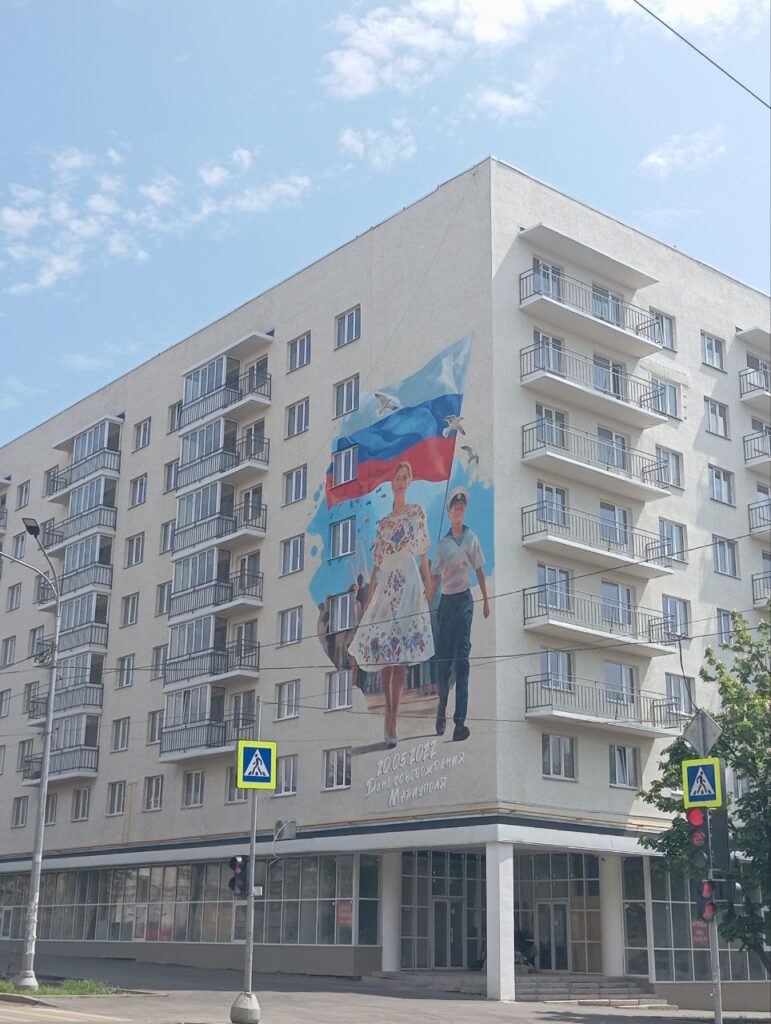
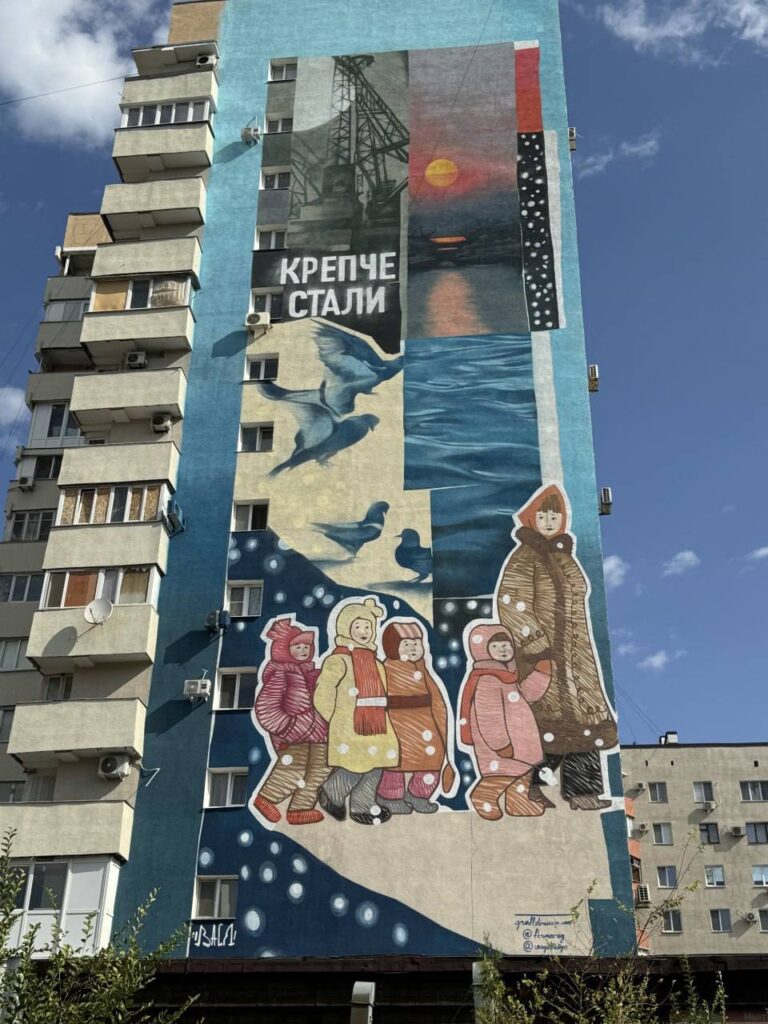
Another mural shows industrial imagery with “Stronger than steel” messaging and winter imagery, directly referencing the Azovstal plant, which is key to Mariupol’s identity and economy. The slogan creates a deliberate play on words as the phrase says “becoming stronger” while it can also be interpreted as “stronger than steel.”
The propaganda twist presents resilience themes while omitting that Russia inflicted the suffering on civilians by invading first, transforming Azovstal from a symbol of Ukrainian resistance into claimed Russian triumph over the very industry that defined the city.

